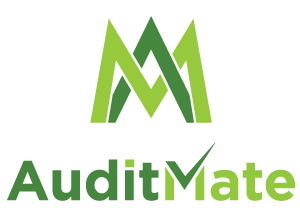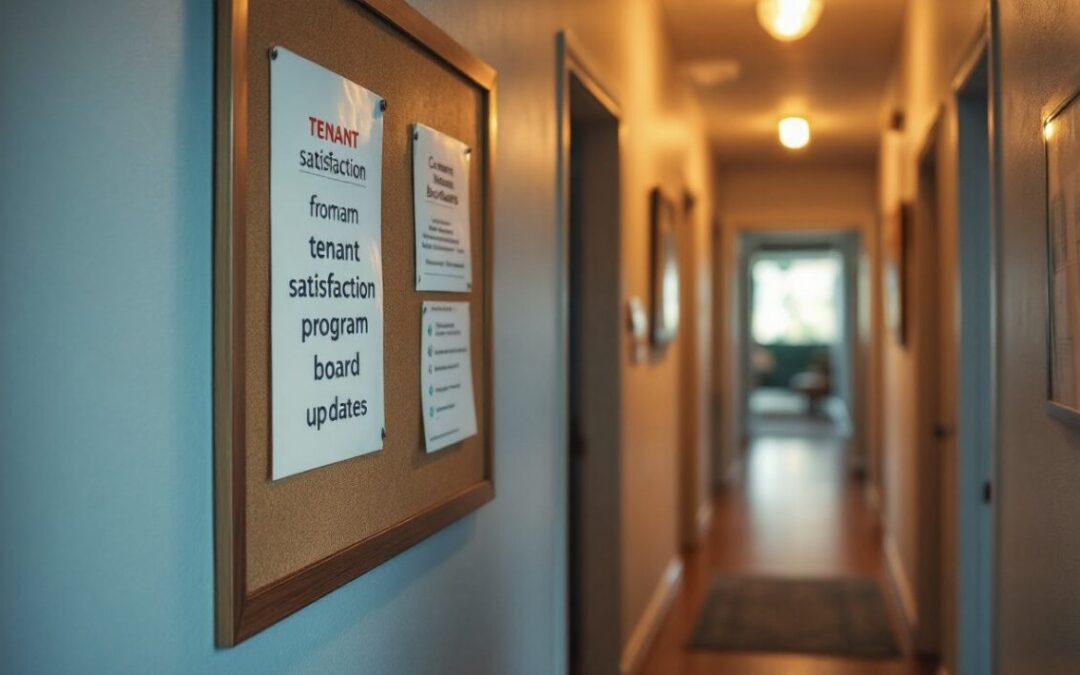Many building owners face challenges in the new tenant onboarding process. One key fact is that the first 90 days set the tone for a long-term tenant relationship. This article will show steps to make these first days successful, focusing on tenant satisfaction programs and effective communication strategies.
Key Takeaways
- The first 90 days are very important for building a strong relationship with new tenants. This time helps to build trust.
- Setting clear and reachable goals, known as SMART goals, is a key part of making the first 90 days successful for tenants.
- Talking and listening to your tenants regularly makes them happier. Meeting often and using tools like email or apps helps keep everyone on the same page.
- Teaching new tenants about things like elevator service and how to handle maintenance issues makes them feel more at home.
- Checking how things are going with regular evaluations and being ready to change plans based on feedback keeps the tenant experience getting better.
Understanding the Importance of the First 90 Days
The first 90 days are key for setting up a strong tenant relationship. This time helps build trust and gets things started right. It’s like the start of a race where both sides need to know the path and how to win together.
For new tenants, this period is more than just moving in. It’s about feeling at home in their new space.
Early wins set the tone for success.
Think about it—20% of workers leave their job within the first 45 days if things don’t go well. But, if they have a good start, 69% will likely stay longer. This shows that good beginnings matter a lot.
For building owners and facility executives, making sure tenants understand everything from elevator protocols to building systems during these first days is crucial.
Key Components of a Successful First 90 Days Plan
A strong start sets the tone for any new tenant relationship. In the first 90 days, focusing on clear goals and a solid action plan is crucial.
Research and Preparation
Research and preparation are the first steps to make sure new tenants start off on the right foot. You need to learn about your business inside out. This means knowing all about commercial property management and tenant relationship management.
Doing this homework helps in making a plan for the first 90 days that works well.
Part of this groundwork includes setting up goals based on what you find out. It’s like putting pieces of a puzzle together. When you know the business well, you can better meet your tenants’ needs.
This step is big for building strong relationships with them from day one. For example, creating tenant welcome packages or using contract management software are actions that come from good research and planning.
These efforts show tenants that managing their experience is a top priority.
Goal Setting
Goal setting is a big part of the first 90 days tenant plan. Goals must be clear and reachable within 90 days. This is known as SMART goals – specific, measurable, achievable, relevant, and time-bound.
Writing down these goals makes it more likely to hit them.
The 90-Day Challenge pushes you to write down your objectives.
For building owners, this could mean setting targets for how fast new commercial tenants settle in or how quickly they respond to elevator maintenance communication. By having these aims set from day one, you can boost the new tenant experience and make sure both sides are happy with the progress being made.
Action Plan Development
Setting goals is just a start. Next comes the action plan development. This step is key for a smooth tenant onboarding checklist and improving new tenant experience. It includes training and mentorship to grow skills.
This plan makes sure everyone knows what needs to happen in the first 90 days. It covers everything from elevator service orientation to understanding building systems. Regular check-ins help track progress.
Feedback lets us adjust as needed, making sure tenants are happy and know how things work, like new tenant elevator protocols and maintenance expectations.
Strategies for Building Effective Tenant Relationships
Building strong tenant relationships starts with clear, consistent communication and shows your commitment to their success. Dive in to find out how you can make every interaction count.
Initial Meetings and Communication
Meeting new tenants and talking to them well is a big step. At the start, go over house rules, who fixes what, and how to pay rent. This makes everything clear from day one. Using email, texts, and tenant portals helps keep track of chats. 5 It’s key for a good link between landlords and tenants.
Next up: Keeping in touch matters a lot too.
Continuous Engagement and Feedback
For building owners and facility executives, keeping tenants happy is a big job. One way to do this is by staying in touch and listening. This means not just talking at the start but all the time.
You could hold events for your community. Events help because properties that do them see folks stay 15% more often. 6 Also, saying “thank you” on their anniversary with rewards makes them happier.
Plus, telling tenants about when things will get fixed or if rules change builds trust. They like knowing what’s going on. This kind of back-and-forth talk keeps everyone on the same page.
Next up is making sure they can do their part well.
Capability Development
Building owners can make their tenants more capable by teaching them about elevator service expectations and how to use the building systems. This is part of a good tenant onboarding process.
You can set up classes or online guides for new tenants. These should cover things like new tenant elevator access and how to handle maintenance issues. Making sure your tenants know how these things work will help them feel at home faster.
It also cuts down on confusion later.
For facility executives, it’s smart to keep talking to tenants after they move in. This keeps the relationship strong. Use tools that you both agree on for communication, like email or a special app.
This makes it easy for tenants to speak up if something goes wrong or if they have questions. By doing this, you lower the chance of misunderstandings and build trust between you and your tenants.
Monitoring Progress and Adapting Strategies
Keeping an eye on progress helps tweak plans for better results. Listen to feedback and change your approach if needed.
Regular Evaluations
Regular evaluations are key. They let you check how things are going with new tenants. You need to meet often. This helps you know what they like and don’t like. After 90 days, it’s time for a big review.
Talk about how everything is working out. If something isn’t right, you can change the plan.
Evaluations also make your tenant experience better in the future. You learn from them and get better at welcoming new tenants. It makes sure both sides are happy and that your building move-in process works well.
This keeps tenants around longer, which is good for business.
Adjustments Based on Feedback
After we check how things are going, we see what needs to change. We listen to what tenants say. This makes our plan better over time. Michael Watkins tells us early feedback is key.
Without a good first 90 days plan, tenants may not stay long. This costs more money.
Making changes based on what people tell us keeps everything running smooth. It helps with tenant satisfaction and building systems orientation too. We keep learning from tenants’ opinions to make their experience better day by day.
Conclusion
The first 90 days are crucial for establishing strong tenant relationships, and managing elevator maintenance is a critical component of this period. AuditMate auditmate.com offers a powerful solution to streamline this process. As a SaaS-based elevator audit software, AuditMate provides comprehensive tools to ensure your elevator maintenance program starts strong and stays strong from day one.
A good onboarding plan, combined with AuditMate’s data-driven auditing capabilities, helps both property managers and tenants understand and track elevator maintenance expectations. The platform simplifies vendor management and ensures strict adherence to maintenance schedules and contracts, making it easier to maintain transparency with new tenants about elevator service levels.
This approach not only keeps tenants happy but also boosts your success in property management by providing concrete data and insights about your elevator maintenance program. Remember, a happy tenant means a successful tenant relationship from the start, and properly maintained elevators are crucial to tenant satisfaction.
Ready to transform your elevator maintenance management and enhance your tenant relationships? Contact AuditMate today to learn how our solutions can help you deliver exceptional tenant experiences from day one. Visit www.auditmate.com or reach out to our team for a demonstration of how we can support your property management goals.
FAQs
1. What is the commercial tenant welcome process?
The commercial tenant welcome process involves a set of best practices to ensure new tenants have a positive experience during their first 90 days. It includes effective communication strategies, property management onboarding, and an orientation about elevator maintenance expectations.
2. How can I improve my tenant communication strategy for the first 90 days?
Improving your tenant communication strategy involves setting clear service level agreements like those related to elevator system orientation or elevator service issues. Regular updates and open lines of dialogue can also enhance the overall tenant experience management.
3. What are some tips on how to welcome new commercial tenants?
Welcoming new commercial tenants successfully requires having a detailed plan that covers all aspects from initial contact through the early stages of occupancy. This could include providing information about building facilities such as elevators, outlining maintenance schedules, and explaining any relevant contract terms.
4. Can focusing on the first 90 days impact my tenant relationship ROI?
Absolutely! The first 90 days are crucial in establishing strong relationships with your tenants which directly impacts your return on investment (ROI). By ensuring satisfaction measurement metrics are met during this period, you’re laying solid foundations for long-term success.
5. Are there any specific tools that can help manage these processes?
Contract Management Software can be helpful in managing tasks like tracking elevator service agreements and other key details pertinent to enhancing a smooth transition into becoming an integral part of your business community during these critical first months.

